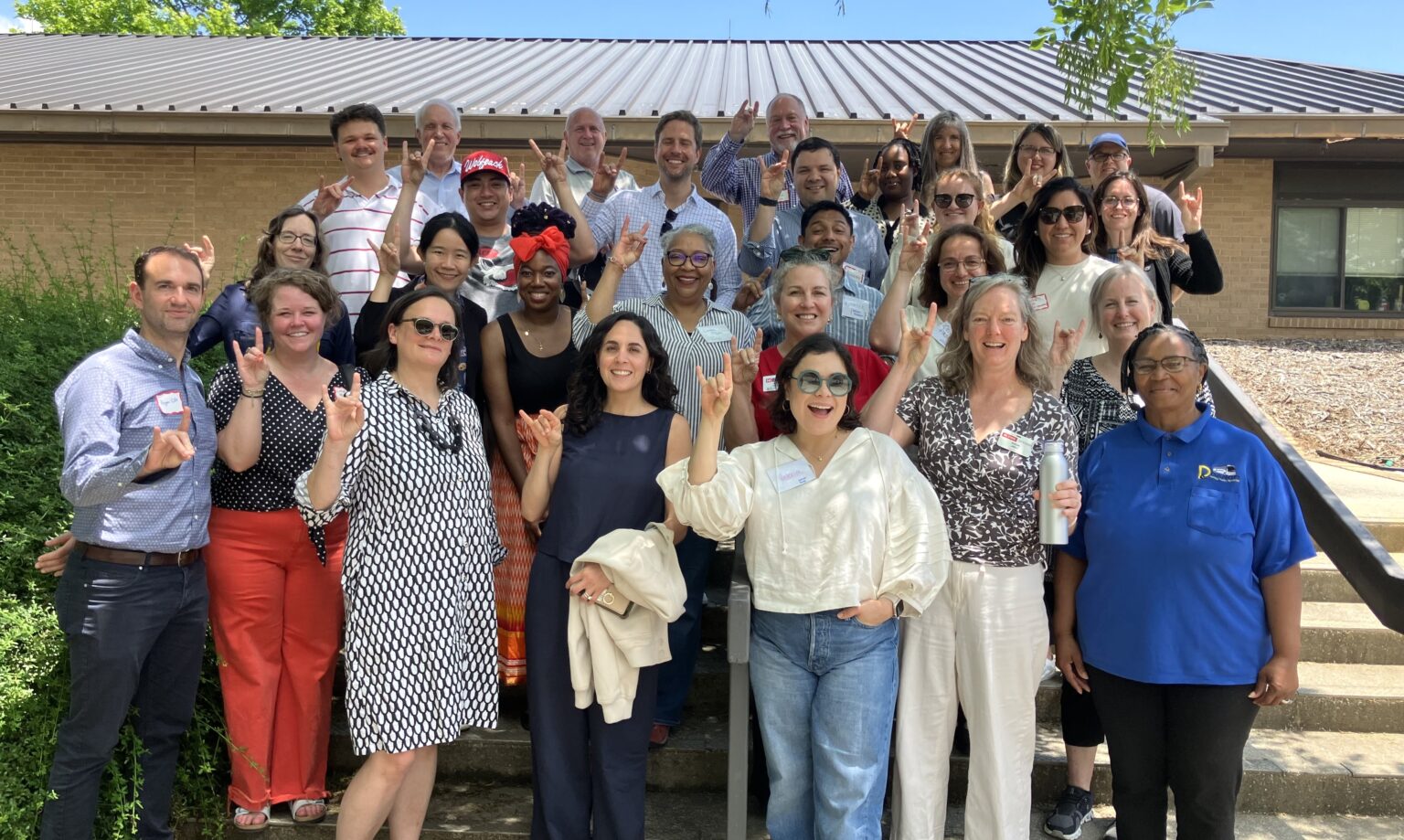Poole Faculty and Staff Open a Dialogue With Anti-Racism Reading Group
Last fall, Poole College of Management’s faculty and staff joined together to learn, listen and grow with the formation of the college’s largest-ever supported reading group. Now, they’re putting their insights about anti-racism to work to build a better, more inclusive college.

By Alex Fulton
The events of summer 2020 highlighted widespread racial injustice across our country and left many members of the Poole community ready to take action, according to Tayah Butler, the college’s new director of diversity, equity and inclusion (DEI).
“After the protests started, some colleagues approached me with the idea of doing a supported reading of a text to help us process what we were experiencing as a nation,” she said. “There was a sense that people wanted to learn more so they could do better.”
After tossing around a few ideas, it was Dean Frank Buckless who selected the reading group’s first book: White Fragility by Robin DiAngelo.
“The Poole College reading group is another initiative in which the college is learning to grow in the DEI space. This group has allowed colleagues across different units and disciplines to share thoughts and ideas in a safe and open environment. I know personally I have enjoyed the conversations and look forward to this initiative growing,” said Buckless.
The New York Times best-seller has become a staple of anti-racism reading lists. But what is “anti-racism,” exactly? As Butler put it: “Being anti-racist means evaluating our personal and professional behavior, and the systems we work within, to identify the ways we’re unconsciously participating in old and outdated ideologies.”
Reading From the Same Page
Response to the reading groups was overwhelming, with 65 members participating — roughly one-third of the college’s faculty and staff.
Members were split among seven groups, each led by a volunteer facilitator. From September through November, groups met monthly via Zoom to discuss the book and grow in their cultural responsiveness.
Many participants found White Fragility, and the conversations that followed, eye-opening:
“The supported reading group challenged me to be conscious of my privilege and continue to work to end systems of oppression in what we do.”
Jason DeRousie, director of undergraduate curriculum and academic programs
“I learned about watching my choice of words and images in communicating with others. I also thought about bringing diversity and inclusion to more aspects of our instructional design process.”
Beth Shepherd, director of instructional design
“We have to look inward and make changes in how we think.”
Rishika Rishika, associate professor of marketing
“These reading groups are vitally important in our college as they help to educate our staff and keep our minds fresh to new ideas and concepts that are important in today’s diverse society. Anything that opens our minds will ultimately benefit our students and our relationships with one another.”
Melusian Wright, assistant director of undergraduate advising programs and reading group co-organizer
Being Inclusive by Design
Over the past year, the reading group is just one of several ways the Poole community has been called upon to ask hard questions and do the heavy lifting around anti-racism work.
“Systemic oppression doesn’t need anyone actively keeping it going,” Butler explained. “The only way to disrupt its presence is working to see it and then catch ourselves before we keep playing along.”
A newly formed diversity, equity and inclusion committee seeks to weave such work into every department, program and initiative within Poole. Established last October, the committee engages faculty and staff to foster a more inclusive environment to research, work and study.
Faculty have also been encouraged to reexamine representation in their curricula. It’s a necessary step as graduates enter an increasingly multicultural, diverse workforce where they’ll need to be prepared to champion equity and inclusion in business.
“Business schools have the ability to impact social change faster than they realize. Poole leads the way in entrepreneurship and sustainability already. It makes sense for us to lead inclusive practices as well,” said Butler.
Opening the Next Chapter
As the reading group turns to a new page this spring, faculty and staff are eager to continue learning together.
They’ll delve deeper into anti-racist behavior with the book Race Talk and the Conspiracy of Silence by Derald Wing Sue, which offers tools for educators to talk openly about racial issues.
A second supported reading group is also being introduced, focusing on the gender spectrum. Participants will read Real Queer America by Samantha Leigh Allen, which explores the experiences of LGBTQIA+ communities in red states.
Another exciting development? A donor has come forward to sponsor the spring 2021 reading groups. Stephanie Trunzo, a 2010 MBA graduate, plans to pull from her executive experience to prepare facilitators for more engaging conversations.
“Every initiative that addresses diversity and inclusion is a good initiative, but the ones that prepare new professionals to guide the next wave of the workplace to a different future are especially important,” said Trunzo. “In our currently distanced world, we can still create a dialog around shared human experience through books.”
Poole College faculty and staff who are interested in participating in a spring 2021 supported reading group can sign up online.
- Categories:


